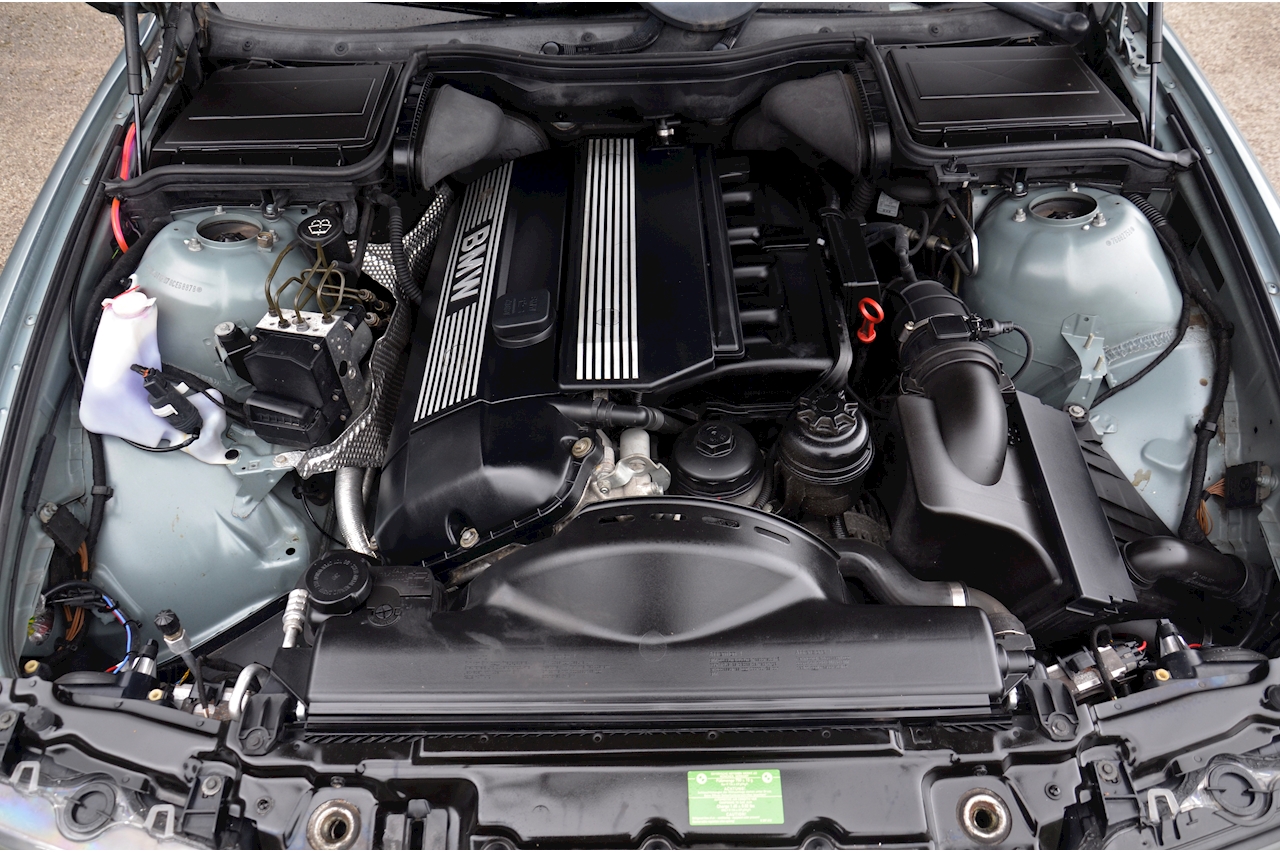The E39 530i

Engine
The BMW E39 530i was powered by the M54B30, a 3.0-liter inline-six (I6) that delivered strong performance, smooth power delivery, and impressive refinement. As the most powerful naturally aspirated six-cylinder engine in the E39 lineup, it struck the perfect balance between performance, reliability, and efficiency.
Introduced with the 2000 facelift, the M54B30 replaced the older M52TU-based 528i, bringing electronic throttle control, a revised intake manifold, and an improved cooling system. These enhancements resulted in better low-end torque, smoother acceleration, and a more responsive throttle.
Thanks to its bulletproof design and strong aftermarket support, the 530i remains a favorite among BMW enthusiasts, often considered one of the best all-around engines BMW ever made.
Performance
The M54B30 delivered 231 hp (170 kW) at 5,900 rpm and 300 Nm (221 lb-ft) at 3,500 rpm, making it significantly more powerful than the 523i and 528i, while maintaining a naturally aspirated linear power delivery.
Its torque-rich midrange made for effortless acceleration, whether cruising on the highway or pushing through twisty roads. The 530i was one of the quickest non-M models in the E39 lineup, offering performance close to the V8-powered 540i but with lower running costs.
Specs:
- Power Output: 231 hp (170 kW) @ 5,900 rpm
- Torque: 300 Nm (221 lb-ft) @ 3,500 rpm
- 0-100 km/h (0-62 mph) Acceleration: ~6.9 seconds (manual)
- Top Speed: ~250 km/h (155 mph) (electronically limited)
The 530i was highly regarded for its balance of power and daily usability, making it one of the most desirable non-M E39 models.
530i Sound
530i Acceleration
Fuel Efficiency
- Combined: ~9.0–10.0 liters per 100 km (23–26 mpg)
- Urban: ~12.0–13.0 liters per 100 km (18–20 mpg)
- Extra-Urban: ~7.0–8.0 liters per 100 km (29–33 mpg)
- Fuel Tank Capacity: 70 liters (18.5 gallons)
Reliability
The M54B30 engine is well-known for its durability and smooth operation, but it does come with a few common maintenance concerns.
Key reliability factors include:
- Strong bottom end – Known to last well beyond 400,000 km (250,000 miles) with proper maintenance.
- Cooling system weak points – Expansion tanks, water pumps, and radiators should be replaced preventively.
- Oil consumption – Common at higher mileage, often due to worn piston rings or valve stem seals.
- DISA valve failures – Can lead to rough idle or power loss if not addressed.
When properly maintained, the M54B30 is considered one of BMW's most reliable and well-balanced inline-six engines ever made.
